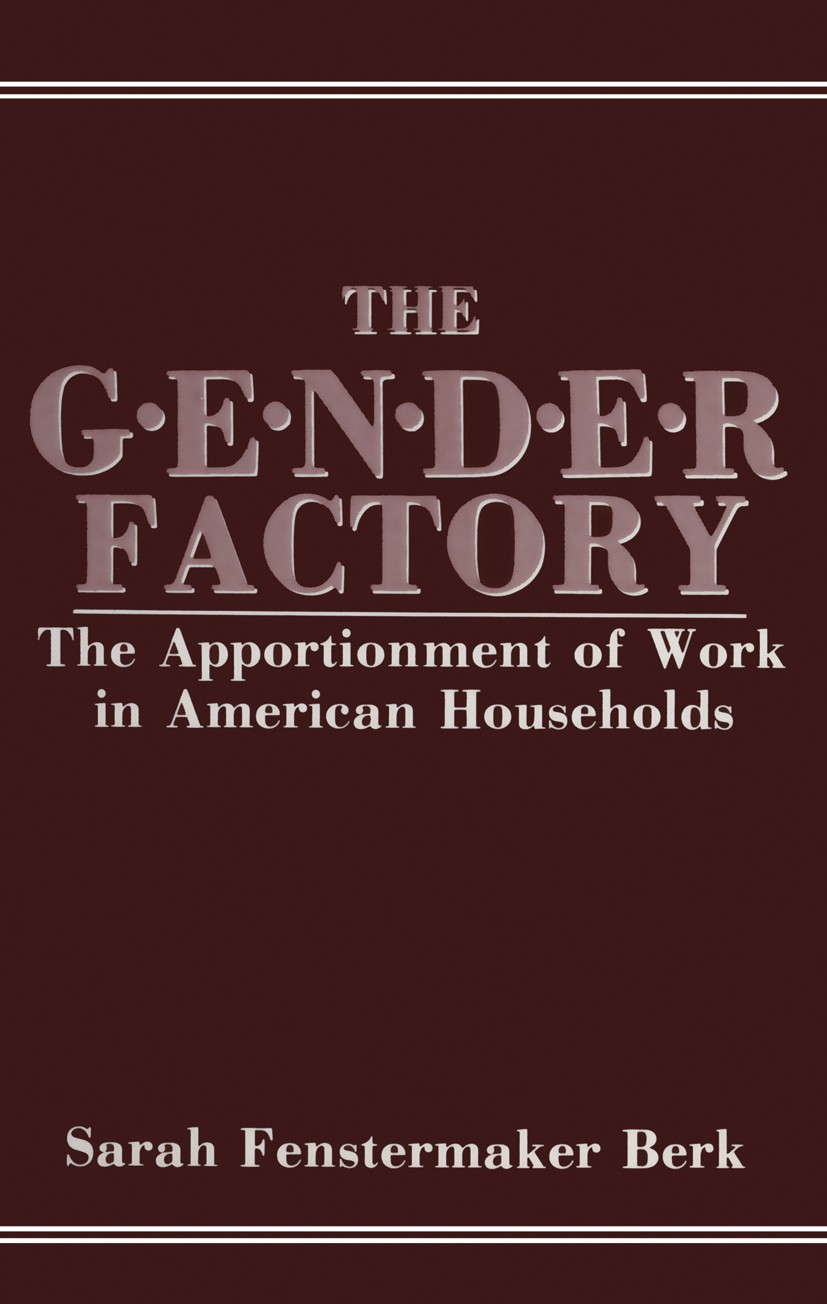| 书目名称 | The Gender Factory | | 副标题 | The Apportionment of | | 编辑 | Sarah Fenstermaker Berk | | 视频video | http://file.papertrans.cn/911/910357/910357.mp4 | | 图书封面 |  | | 描述 | tion addressed by this analysis centers on the reciprocal relation between 1 household domestic and market work efforts. It should be obvious by now that this chapter is not concerned ex plicitly with the contributions of individual members to household or mar ket activity, nor does it examine the mechanisms by which work tasks or time is apportioned among them. To reiterate, households per se are the unit of analysis; the division of labor within, with respect to either household or market activities, is ignored. In this chapter, one must pre tend that the social relations within the household productive unit, which critically shape both the nature of work and its allocation, are hidden from view. To return to the earlier metaphor, households establish a to tal household "pie," made up of all the market and domestic chores that they will undertake and the time required for them. Only after that "pie" is created can it be sliced and the pieces doled out to individual members. 2 The household and market pie defined and described here can be roughly conceptualized as the total productive capacity of the household, or as the result of a pooling of individual talents and resources. | | 出版日期 | Book 1985 | | 关键词 | ETA; gender; income; nature | | 版次 | 1 | | doi | https://doi.org/10.1007/978-1-4613-2393-8 | | isbn_softcover | 978-1-4612-9461-0 | | isbn_ebook | 978-1-4613-2393-8 | | copyright | Plenum Press, New York 1985 |
The information of publication is updating

|
|
 |Archiver|手机版|小黑屋|
派博传思国际
( 京公网安备110108008328)
GMT+8, 2026-2-8 02:02
|Archiver|手机版|小黑屋|
派博传思国际
( 京公网安备110108008328)
GMT+8, 2026-2-8 02:02


